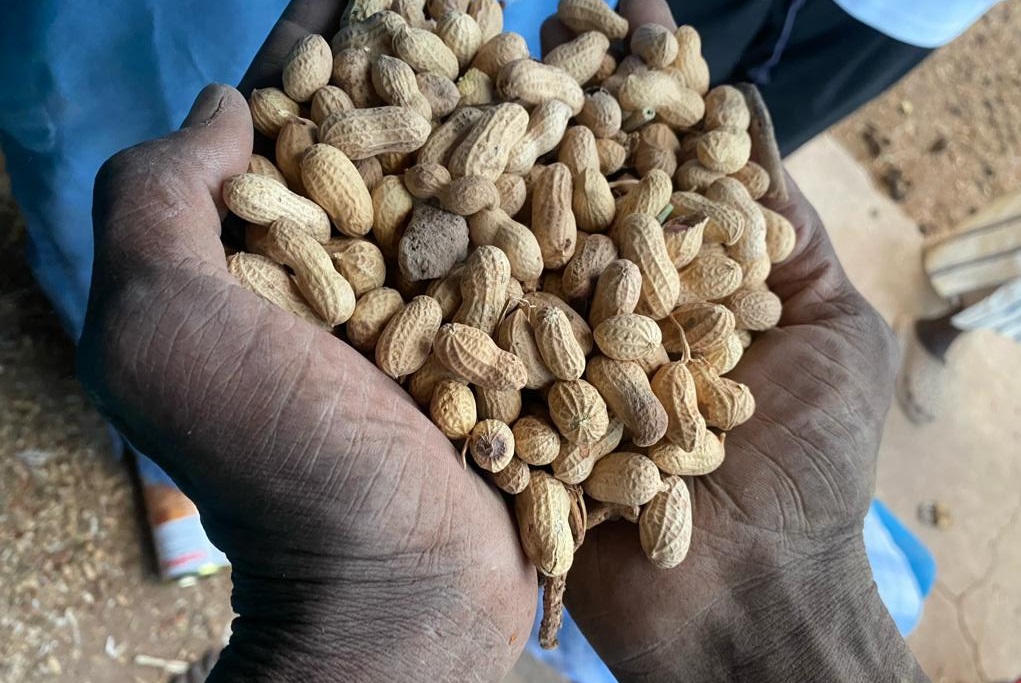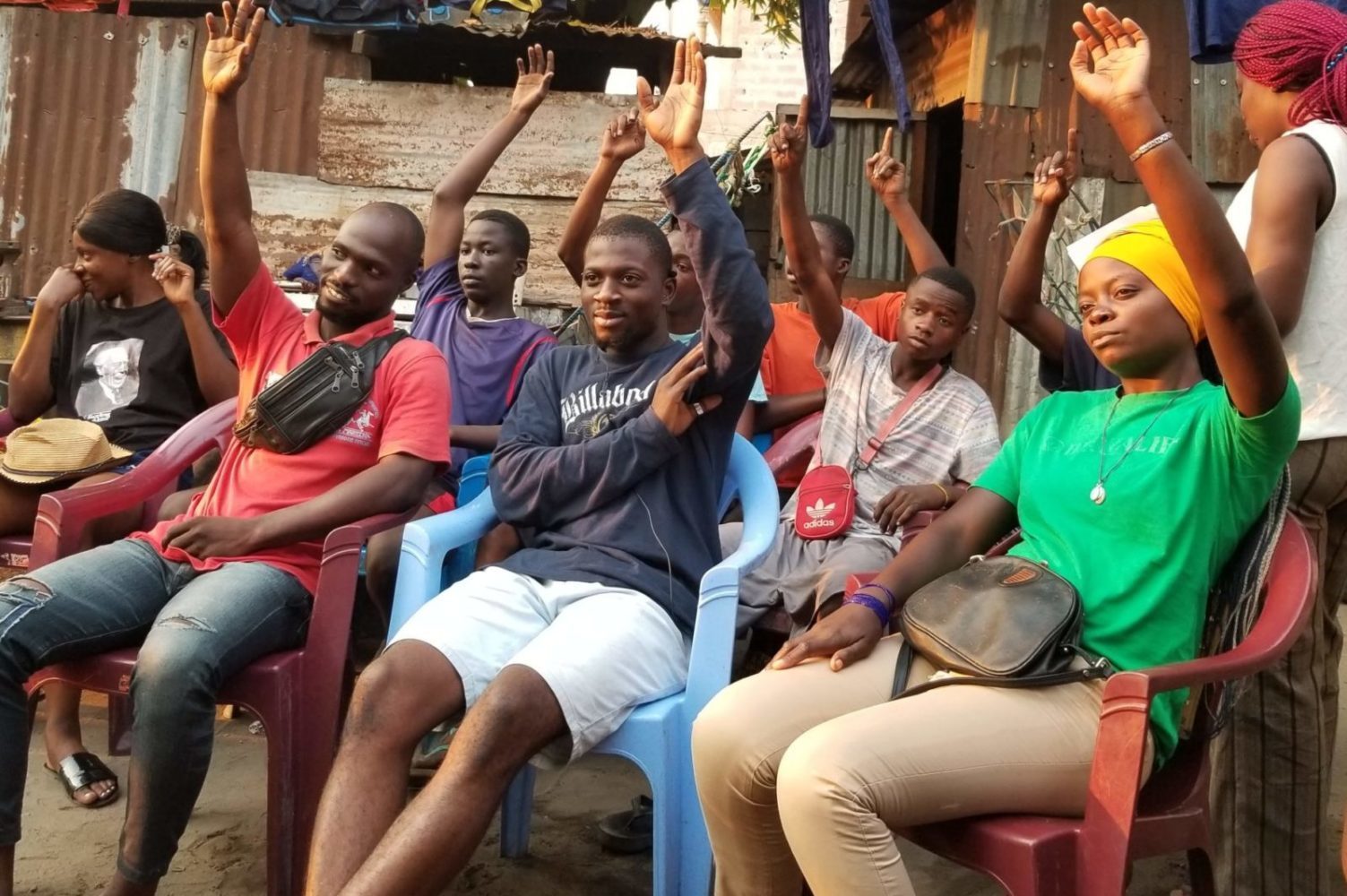Mame Aby Seye, managing director of the Vocational and technical training financing fund (3FPT) and Kader Beye, head of Studies and Development at the Acep Senegal financial institution, answered our questions on support for setting up businesses. Their institutions are both partners of GRET in the Ajesud* project, which aims to develop the employability of young Senegalese people by prioritising the training-funding-professional integration continuum.

Mame Aby Seye, managing director of the Vocational and technical training financing fund (3FPT)
In your opinion, what are the conditions for successful, quality non-financial support?
The experience of the Ajesud project enables us to draw lessons about the key factors for success. On the one hand, a rigorous mechanism to select the people that will benefit from the scheme needs to be put in place. Not everybody is a “born entrepreneur” and setting up a business requires strong motivation and total commitment, which are two essential factors for successful non-financial support. The definition of pertinent selection criteria makes it possible to very quickly identify the right profiles.
Secondly, one-on-one support must be effective. Apart from collective training, provision of one-on-one support and regular monitoring throughout the training course are decisive for the success of the entrepreneurial project. This means mobilising trainers and coaches who are motivated, experienced and competent, and structuring the services offer around stakeholders who are acknowledged in their sector.
Lastly, dedicated financial resources are necessary. We need to have relatively substantial financial resources to cover the cost of implementing the various stages of support, notably costs relating to training sessions, coaching, logistics and transport. Making this type of support sustainable requires specifically dedicated available financial resources.
In what way is non-financial support for entrepreneurs an important stage in their business creation process?
Non-financial support is essential in the business creation process. Data produced by the Industrial Upgrading and Modernisation office shows that in Senegal, almost 60 % of SMEs and micro businesses do not survive their first year. Poor management of the entrepreneurial project, ignorance of market realities, insufficient contacts and lack of well-designed, realistic business plans are among the main reasons for these failures. People with business creation projects often have no knowledge of the existence of these support services. These shortcomings explain the difficulties encountered by a good number of young first-time business creators in accessing funding.
What is your view on the collaboration initiated more than two years ago with Acep Senegal as part of the AjeSud project?
Since the beginning of the project, we have been collaborating with the Acep Senegal financial institution, which is a first for 3FPT. The development of financial products exclusively intended for people having completed their courses at the training centres – who are usually excluded from all forms of funding – is a real source of satisfaction for 3FPT, which has been trying to push the boundaries for several years now.
In order to make activities sustainable, we are thinking about another partnership with Acep Senegal to expand our target audience, make our entrepreneurship support services more accessible and improve procedures for processing of funding applications.
—–

Kader Beye, head of Studies and Development at the Acep Senegal financial institution
Why are financial institutions not keen to provide finance to young entrepreneurs? How does non-financial support reduce risks?
From the institution’s point of view, financing young people is complex and risky, so they are generally excluded from credit policies. What prevents them from accessing finance is the mismatch between training and market requirements – which makes projects unlikely to meet demand – but also a lack of skills in terms of business management and lack of collateral for loans. All of these factors do not give the institution the security essential for the success of entrepreneurial projects, particularly in terms of covering credit risks. This is where non-financial support – provided by an organisation supporting businesses – makes it possible to fill the gaps. This organisation supports young people to draw up their business plan, seek financing and manage credit, so that their business projects are structured, measured and financially viable, taking a “see big but start small” approach.
Should the same collateral be expected from young people as from traditional clients? How does this manifest itself, particularly in the financial products provided to them via AjeSud?
Traditional clients must be able to demonstrate their management aptitudes and their capacity to respect financial commitments. They have accumulated regular income during several credit cycles and must be able to prove tangible assets as collateral. Contrary to traditional clients (where the focus is on cash-flow), in the case of first-time entrepreneur loans, we analyse financial projections. Financing this clientele segment requires a product-based approach and taking appropriate collateral.
Within AjeSud, the approach is contextual, combining a guarantee from a legal guardian (a relation who is the trusted third party) and commitment from the young entrepreneur. This focus on matching of elements and sustainability punctuated the financial product design process, with AjeSud striving to reach a happy medium between specific needs and the reality of the financial market.
How is your collaboration with 3FPT going, considering it is a public institution dealing with issues that seem different to those of a financial institution such as yours?
The AjeSud experience demonstrates the importance of developing synergies between financial institutions and public support structures such as 3FPT. This makes it possible to reduce risks for all parties and to ensure sustainability of the services after the project ends. The system implemented fits into an overall strategy defining a flexible collaborative framework, integrating the economic and financial challenges of both organisations and the principles of continuity and interdependence of the support plan components.
* The Ajesud project is being implemented thanks to financial support from the European Union (EU). The content of this article is the sole responsibility of GRET and does not necessarily reflect the opinions of the EU.






